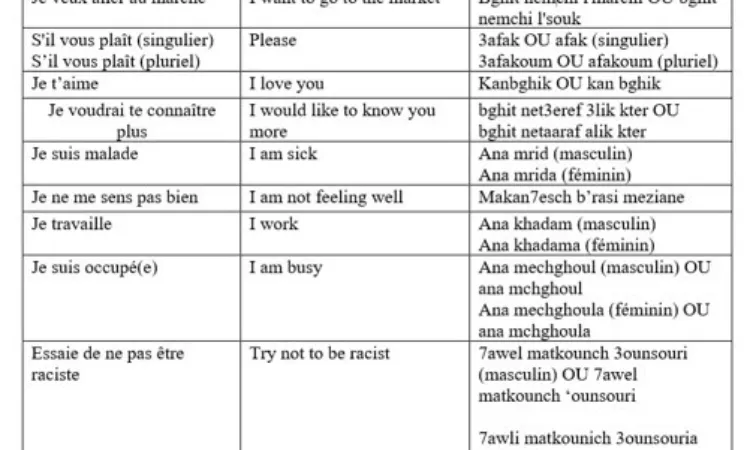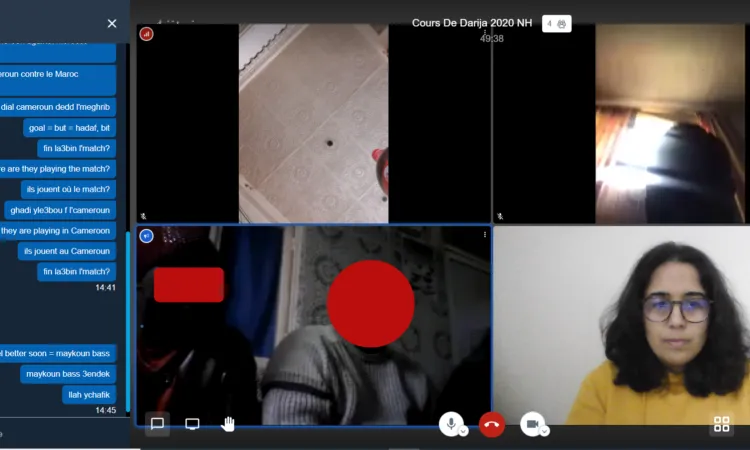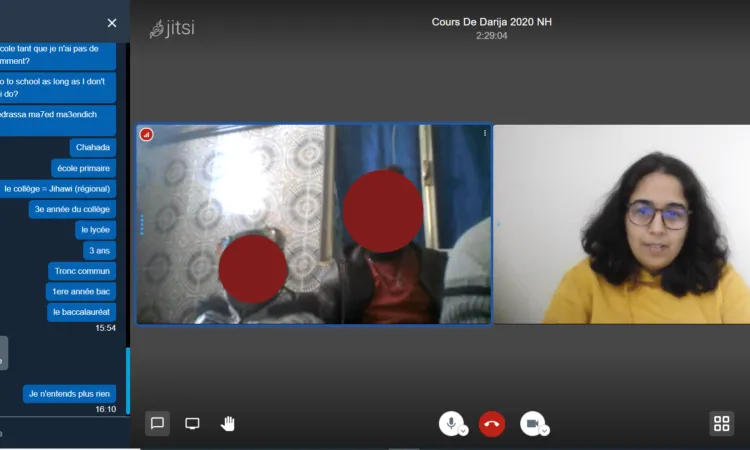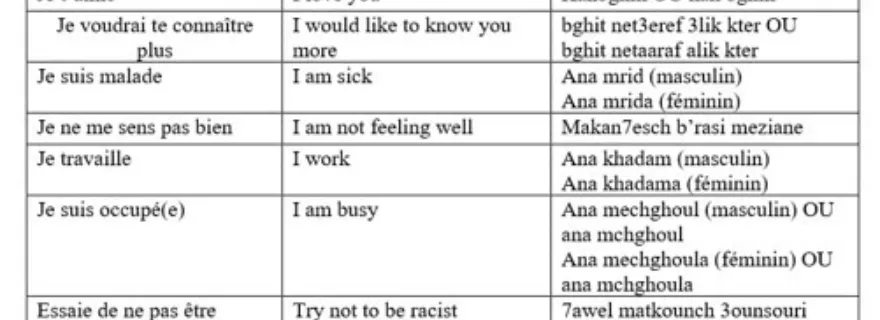Part 1 - Fieldwork online: Not just a back-up plan
How can online fieldwork offer both connection and complexity, when trust is earned word by word? What are the promises and limits of collecting data online, and why we shouldn't think of it as a second-best option?
In blog posts under ‘Designing,’ you can find out more about how we had to adapt while doing fieldwork in challenging times. In this blog, I delve into how I collected my data and the value of doing online fieldwork through giving language lessons.

Online fieldwork through language lessons
I worked with my fieldwork coordinator to organize bi-weekly online Darija and English language classes with sub-Saharan migrants who were in Morocco. These sessions were chaotic, intimate, and shaped by unstable internet connections, yet they were windows into the everyday.
Trust is built in small and repeated gestures
Online settings offer surprising opportunities to build trust. In my fieldwork, the bi-weekly language lessons became familiar rituals, and spaces of laughter, silence, and mutual effort. Participants grew comfortable over time, knowing they could show up as they were, in chaos or calm, and ask all the questions they wanted. Slowly our language lessons started transforming into a space for cultural exchanges and conversations, and learning more about each other's culture and traditions, without shying away from difficult topics. By constantly showing up, trust wasn’t asked for. It was earned through presence, patience, and continuity. This trust made space for vulnerability, for stories that might not surface in a single formal interview.

Reciprocity
Reciprocity in online fieldwork isn’t about compensation. It’s about care. If participants are taking time out of their days to talk to me and help me with my research, I can also take time to do something for them. Teaching language lessons wasn’t only a method, it was a shared activity with mutual benefit. While participants gained skills and learned at their own pace, I gained layered insight into their daily lives, concerns, and aspirations. This exchange helped shift the research dynamic: less extractive, more horizontal. Reciprocity became a form of recognition.

Yet, it is not enough
Although online fieldwork provides a great insight into the participants' daily lives and builds trust over time, it of course has its limits such as restricted access, lack of digital literacy, and time constraints. However, it builds a solid foundation for what comes next: on-site fieldwork. Check out Part 2 for more details!


